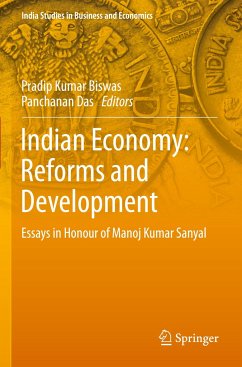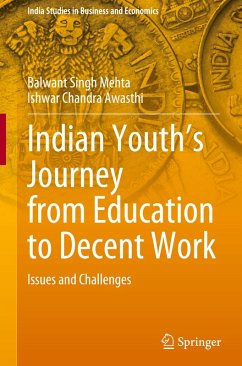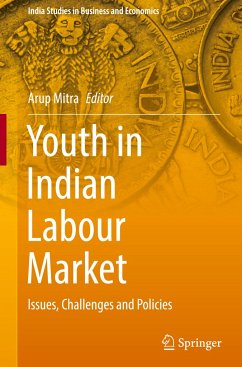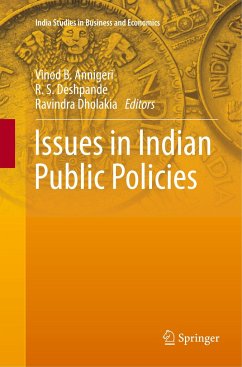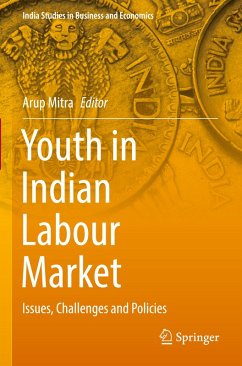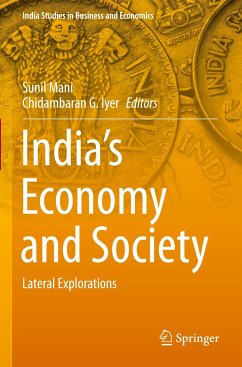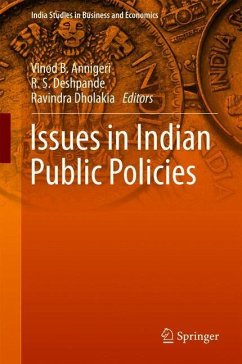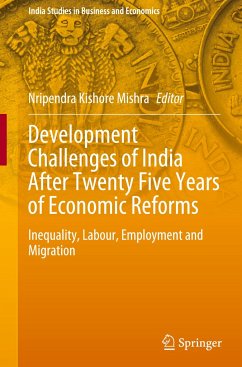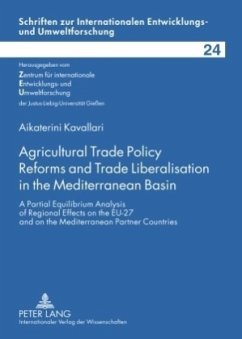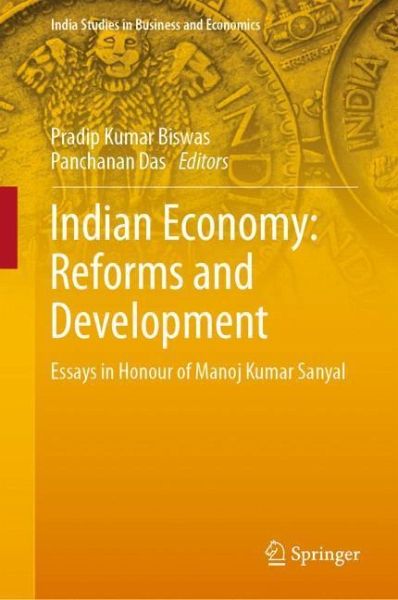
Indian Economy: Reforms and Development
Essays in Honour of Manoj Kumar Sanyal
Herausgegeben: Biswas, Pradip Kumar; Das, Panchanan

PAYBACK Punkte
38 °P sammeln!
The book presents a comprehensive study of the impact of policy reforms on output, employment, and productivity growth across sectors of India since 1991. It showcases varied responses from different sectors as they faced different degrees of policy interventions, and challenges or opportunities as regards markets, technology, and availability of skills and other complementary resources. The book also discusses the contributions of the service sector on India's GDP and employment. The book throws light on the phenomena of rising inequality and persistent poverty which continues to shadow and b...
The book presents a comprehensive study of the impact of policy reforms on output, employment, and productivity growth across sectors of India since 1991. It showcases varied responses from different sectors as they faced different degrees of policy interventions, and challenges or opportunities as regards markets, technology, and availability of skills and other complementary resources. The book also discusses the contributions of the service sector on India's GDP and employment. The book throws light on the phenomena of rising inequality and persistent poverty which continues to shadow and be a hallmark of post-reform India, despite high economic growth. It underlines the failure of these reforms to bring about major change in social and economic organizations and institutions. The book's contents stress on the criticality of addressing these issues as they have a serious potential of jeopardizing the country's ability to maintain high growth momentum. With thesepertinent topics, the book would be of interest not only to the research community, but also to policy makers and practitioners of various sectors addressed here.





